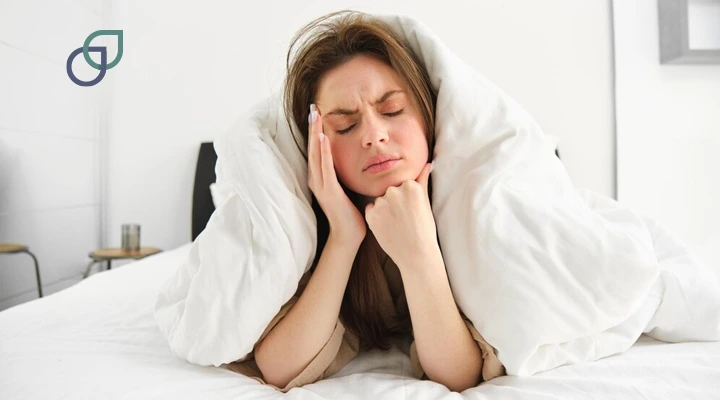Hangovers after late-night parties can be highly problematic as they can ruin your entire day and affect your office hours. Symptoms like headaches, nausea, fatigue, and brain fog make it difficult to focus and be productive at work. It’s not only physically uncomfortable but also mentally challenging, potentially leading to poor performance and decreased job satisfaction. Therefore, a rapid recovery option is always required to avoid any disturbance the next day. IV for hangovers has emerged as a winner here. Let’s discuss it in detail.
What is a Hangover?
Following a night of excessive drinking, one may wake up with a dreadful sensation. Indications of a hangover often include an unsettled stomach, parched mouth, throbbing headache, and a preference for keeping the curtains shut. A severe hangover can impede concentration and spoil an entire day.
Hangover Symptoms
Symptoms of a hangover can vary from person to person, but common symptoms include:
- Headache: A pounding or persistent headache is a frequent hangover symptom.
- Nausea and Vomiting: An upset stomach, queasiness, and sometimes vomiting may occur.
- Fatigue: Feeling extremely tired is common after excessive alcohol consumption.
- Dehydration: Alcohol is a diuretic and can lead to dehydration, causing symptoms like dry mouth and excessive thirst.
- Sensitivity to Light and Sound: Increased sensitivity to bright lights and loud noises is typical.
- Dizziness or Vertigo: Some people experience a sense of spinning or dizziness.
- Muscle Aches: Muscular discomfort or soreness can be present.
- Cognitive Impairment: Difficulty concentrating, memory problems, and reduced cognitive function may occur.
- Irritability and Mood Swings: Hangovers can lead to irritability and changes in mood.
- Increased Heart Rate: Elevated heart rate or palpitations can be a symptom in some cases.
- Anxiety and Depression: Hangovers can exacerbate feelings of anxiety or depression in some individuals.
- Shakiness: Shaking or tremors may occur, particularly in heavy drinkers or those with alcohol dependence.
IV for Hangover: Rapir Recovery from Alcohol Aftermaths
IV therapy, or intravenous therapy, is a medical procedure involving the direct delivery of fluids, vitamins, minerals, and sometimes medications into the bloodstream through an IV line. It is often used to address hangovers by rapidly rehydrating the body and replenishing essential nutrients lost due to excessive alcohol consumption. IV therapy typically provides quicker results compared to oral hydration, and its downtime is minimal as it allows for immediate absorption of fluids and nutrients, potentially alleviating hangover symptoms faster. However, it’s important to consider the cost and consult with a healthcare professional for appropriate guidance.
Hangover Causes
Hangover can be a result of several factors, here aare some factors that can potentially cause symptoms of Hangover:
- Dehydration: Alcohol is a diuretic, meaning it increases urine production and can lead to dehydration. Dehydration can result in symptoms like a dry mouth, thirst, and electrolyte imbalances.
- Acetaldehyde: When your body metabolizes alcohol, it produces a toxic substance called acetaldehyde, which can cause inflammation and contribute to hangover symptoms.
- Disruption of Sleep: Alcohol can disrupt your sleep patterns, leading to poor-quality sleep or insomnia. This can contribute to fatigue and irritability the next day.
- Gastrointestinal Irritation: Alcohol can irritate the stomach lining and increase stomach acid production, leading to nausea, vomiting, and upset stomach.
- Congeners: Some alcoholic beverages, particularly dark ones like red wine and whiskey, contain congeners—chemical compounds that can worsen hangover symptoms.
- Blood Sugar Fluctuations: Alcohol can lead to fluctuations in blood sugar levels, which can contribute to feelings of shakiness and fatigue.
- Immune System Activation: Drinking alcohol can activate the immune system, leading to inflammation and various symptoms associated with a hangover.
- Individual Factors: Factors like your tolerance to alcohol, genetics, age, and overall health can also influence the severity of your hangover symptoms.
How to Prevent Hangover
To prevent a hangover or reduce its severity, you can take several precautions before, during, and after drinking alcohol:
- Eat a Meal: Have a substantial meal before you start drinking. Food in your stomach can slow the absorption of alcohol and reduce the severity of a hangover.
- Hydrate: Drink plenty of water before, during, and after consuming alcohol to stay hydrated. Alcohol can dehydrate your body, and staying hydrated can help mitigate hangover symptoms.
- Limit Alcohol Consumption: Drink alcohol in moderation. Set a limit for yourself and stick to it. The more you drink, the higher the chance of a hangover.
- Choose Beverages Wisely: Opt for drinks with lower alcohol content or fewer congeners (chemical compounds that can worsen hangovers), such as clear spirits like vodka or gin, rather than darker ones like whiskey or red wine.
- Pace Yourself: Sip your alcoholic drinks slowly rather than consuming them quickly. Avoid binge drinking.
- Alternate with Water: Have a glass of water between alcoholic drinks to maintain hydration and slow down alcohol intake.
- Avoid Mixing Alcohol: Stick to one type of alcohol rather than mixing different types, which can increase the likelihood of a hangover.
- Get Enough Sleep: Ensure you have a good night’s sleep before drinking. Fatigue can exacerbate hangover symptoms.
- Take Supplements: Some people find taking supplements like B vitamins and N-acetylcysteine (NAC) before or after drinking can help reduce hangover severity.
- Avoid Smoking: Smoking can worsen hangover symptoms, so consider abstaining if you’re a smoker.
- Plan for Transportation: Arrange for a designated driver or alternative transportation if you plan to drink away from home.
- Avoid Caffeine and Energy Drinks: Caffeine can dehydrate you further, and energy drinks may mask the effects of alcohol, leading to excessive drinking.

